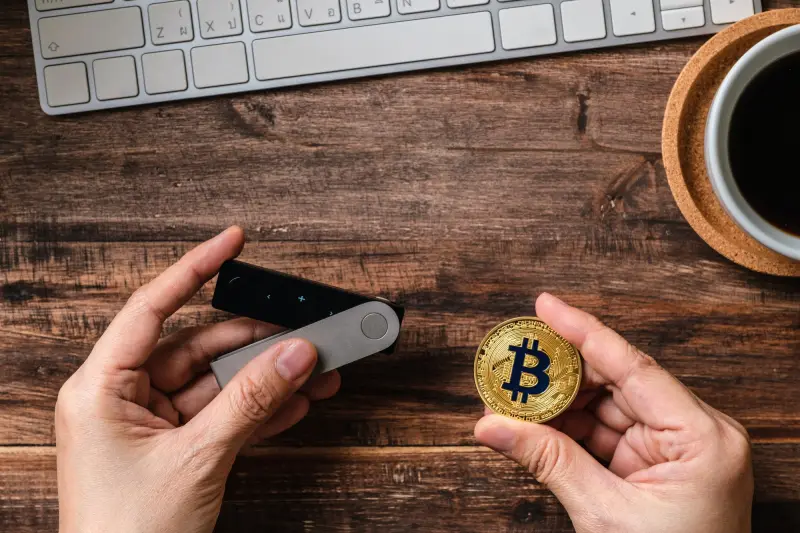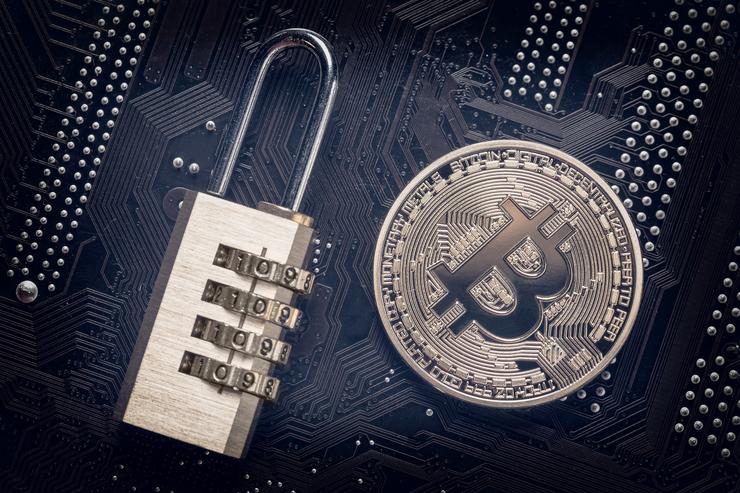Bitcoin Guide | Protecting your Bitcoin investments is of paramount importance, and we’ve compiled a comprehensive list of strategic security measures to ensure your digital assets remain secure. Explore our in-depth Bitcoin security recommendations below.

Fortify the Fort: 10 Vital Bitcoin Security Strategies
Shield Your Private Keys in Offline Vaults
Safeguarding your private key is the bedrock of your crypto security. Keep your private key confidential and away from anyone you don’t trust. Opt for Bitcoin cold storage methods like air-gapped computers, ensuring your private keys are insulated from internet exposure. Employ alternatives such as paper storage or dedicated hardware cold wallets.
Exclusive Hardware Usage
Minimize exposure to potential viruses and hackers by utilizing dedicated USB keys for transferring data between online and offline computers. Elevate security by designating an entire offline computer as your wallet.
Harness the Power of Hardware Wallets

Among the safest methods to store Bitcoin, hardware wallets utilize encrypted USB keys. These wallets integrate onboard computers running dedicated operating systems for Bitcoin transactions.
Bitcoin Guide – Bolster Your PC Security
Uphold the vigilance of your antivirus software and security measures. The smallest vulnerability can expose your system to attacks. Remain informed about cybersecurity, steer clear of malicious websites, and stay up-to-date on security practices.
Linux: A Sanctuary of Security

Employ the Linux operating system to resist USB-based attacks. Enhance your Bitcoin transactions’ safety by transferring them between online and offline computers using Linux.
Backup for Ultimate Protection
Diversity is key to safety. Securely store backup copies of your cryptocurrency wallet to prevent data loss due to hardware failures, unforeseen accidents, or human errors. This also facilitates wallet restoration in case of device theft.
Safeguard Your Identity
With physical attacks on crypto holders on the rise, prioritizing privacy is paramount. Limit exposure to personal information and avoid divulging PINs, phone numbers, and more. Maintain utmost discretion to ensure safety and well-being.
Utilize Escrow Services
For uncertain transactions, deploy escrow services. Send Bitcoins to escrow while the buyer awaits their purchased item. Sellers can rest assured their funds are secure until the buyer confirms receipt.
Two Factor Authentication (2FA) for Extra Layer of Security

2FA provides an added security layer by sending verification codes to trusted devices. This thwarts hacker intervention, ensuring the safety of your funds.
MultiSig for Enhanced Security
MultiSig involves multiple signatures to authorize transactions, minimizing the risk of fund misuse. Utilize wallets supporting MultiSig, such as Armory, Electrum, Coinbase, GreenAddress, and Xapo.
<Bitcoin – What are the pros and cons?>
Bitcoin Guide – Bonus: Proactive Measures for Unparalleled Security

Practice Digital Discretion
Avoid discussing your digital wealth online or offline. Bragging about profits or showcasing wallet contents can invite trouble.
Keep Wallet Addresses Confidential
Prevent criminals from targeting you by refraining from posting wallet addresses online. If necessary, use separate wallets for specific purposes.
Conceal Transaction Trails
Understand that transactions between your wallets are publicly viewable. To maintain anonymity, use anonymous cryptocurrencies or coin mixers for larger transfers.
Employ Decoy Wallets
Establish a decoy wallet containing a fraction of your wealth in case of a threat. Use it as a means to divert attention and safeguard your substantial assets.
By implementing these multifaceted security measures, you can fortify your Bitcoin holdings and ensure a resilient defense against potential threats and attacks.
<Bitcoin – Is Free Bitcoin Available? Exploring Methods of Acquisition>



